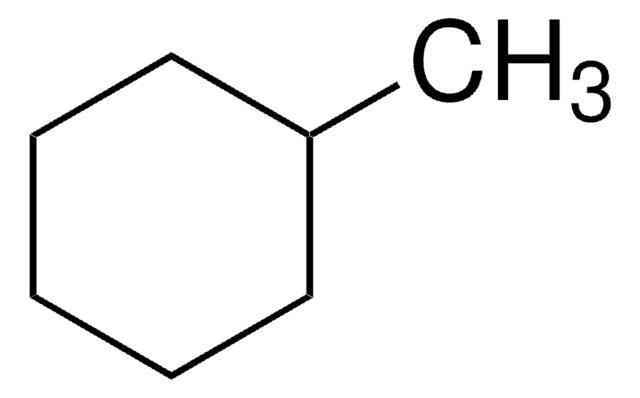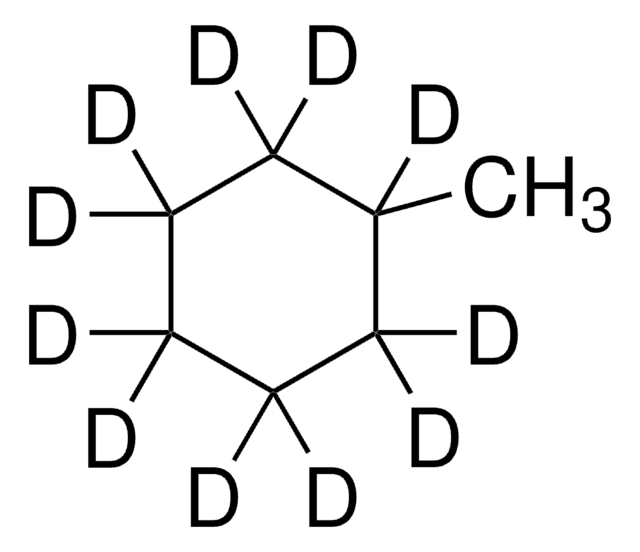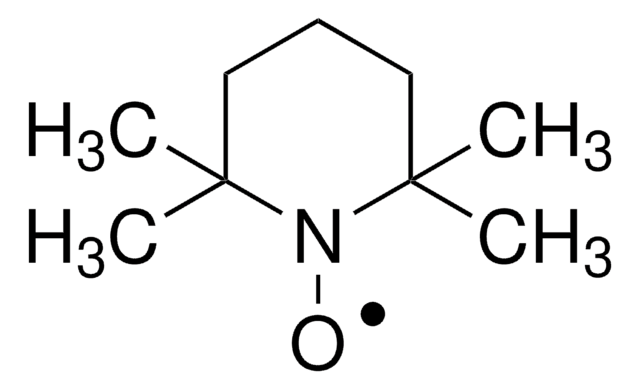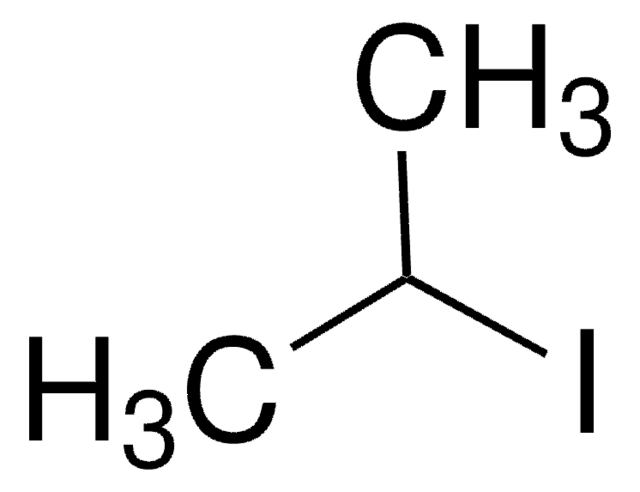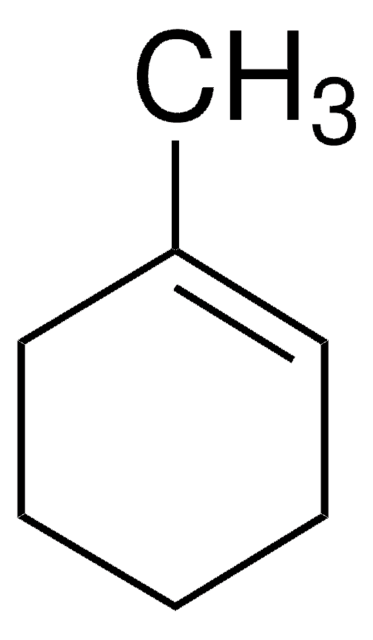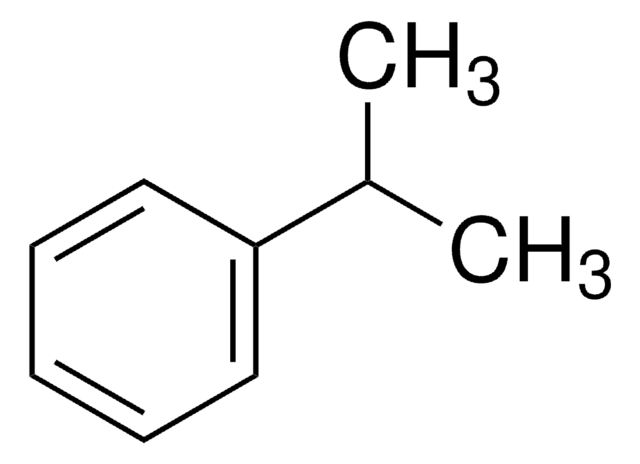M37889
Methylcyclohexane
ReagentPlus®, 99%
Synonym(s):
Hexahydrotoluene
About This Item
83.2 mmHg ( 37.7 °C)
Recommended Products
grade
reagent
Quality Level
vapor density
3.4 (vs air)
vapor pressure
37 mmHg ( 20 °C)
83.2 mmHg ( 37.7 °C)
product line
ReagentPlus®
Assay
99%
form
liquid
autoignition temp.
545 °F
expl. lim.
6.7 %
dilution
(for general lab use)
refractive index
n20/D 1.422 (lit.)
bp
101 °C (lit.)
mp
−126 °C (lit.)
density
0.77 g/mL at 25 °C (lit.)
SMILES string
CC1CCCCC1
InChI
1S/C7H14/c1-7-5-3-2-4-6-7/h7H,2-6H2,1H3
InChI key
UAEPNZWRGJTJPN-UHFFFAOYSA-N
Looking for similar products? Visit Product Comparison Guide
Related Categories
Application
- Au/TiO2-catalyzed aerobic epoxidation of stilbene.
- Chromium-catalyzed selective ethylene oligomerization.
- Preparation of ABA-type olefin triblock copolymers.
Legal Information
Signal Word
Danger
Hazard Statements
Precautionary Statements
Hazard Classifications
Aquatic Acute 1 - Aquatic Chronic 1 - Asp. Tox. 1 - Flam. Liq. 2 - Skin Irrit. 2 - STOT SE 3
Target Organs
Central nervous system
Storage Class Code
3 - Flammable liquids
WGK
WGK 2
Flash Point(F)
24.8 °F - closed cup
Flash Point(C)
-4.0 °C - closed cup
Choose from one of the most recent versions:
Already Own This Product?
Find documentation for the products that you have recently purchased in the Document Library.
Customers Also Viewed
Our team of scientists has experience in all areas of research including Life Science, Material Science, Chemical Synthesis, Chromatography, Analytical and many others.
Contact Technical Service